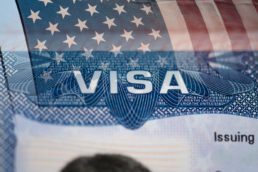On May 23, 2017, United States Citizenship and Immigration Services (USCIS) issued a policy memorandum concerning the H-1B Master’s Cap exemption. The memorandum designated the Administrative Appeals Office (AAO) decision in Matter of A-T-Inc. as an Adopted Decision. It establishes policy guidance that applies to and binds all USCIS employees. It states that “in order to qualify for an H-1B numerical cap exemption based upon a master’s or higher degree, the conferring institution must have qualified as a “United States institution of higher education” at the time the beneficiary’s degree was earned.”
H-1B visas are statutorily capped at 65,000 per year. However, a petitioner may seek a cap exemption for beneficiaries who have “earned a master’s or higher degree from a United States institution of higher education.” This is known as the Master’s Cap exemption. The Immigration and Nationality Act (INA) defines “institution of higher education” as a public or non-profit educational institution that “is accredited …, or if not so accredited, is an institution that has been granted preaccreditation status.” The statute does not expressly state whether the institution must have been preaccredited at the time the degree was earned or at some different point in time when a relevant immigration benefit is adjudicated. This is at issue in Matter of A-T-Inc.
In Matter of A-T-Inc., the petitioner was seeking to employ the beneficiary under the H-1B classification for specialty occupations. It claimed that the beneficiary qualified for the Master’s Cap exemption based on a master’s degree earned from the International Technological University (ITU) on December 31, 2010. The Director of the California Service Center, however, denied the petition because ITU was not granted preaccreditation status until 2011. In other words, the petition was denied because at the time the beneficiary received a master’s degree, ITU was not a qualified U.S. institution of higher education under the INA.
On appeal, the AAO had to determine when a U.S. institution is deemed to be one of higher education for purposes of the Master’s Cap exemption. The petitioner argued that the INA does not require the degree to be from a U.S. institution of higher education at the time the degree is awarded. Rather, it asserted that a beneficiary may qualify for the Master’s Cap exemption if the conferring institution qualified at the time of H-1B adjudication. The AAO disagreed. The AAO concluded that, in order to qualify for the Master’s Cap exemption, the conferring institution must have qualified as a U.S. institution of higher education at the time the beneficiary’s degree was earned. Two points were raised to justify this conclusion. First, requiring beneficiaries to earn their degrees from qualified institutions at the time the degree is earned helps ensure the quality of education necessary to merit the exemption. Second, the petitioner’s interpretation of the statute could lead to imprudent and unintended results. It introduces a level of uncertainty for graduates seeking immigration benefits, because eligibility for the Master’s Cap exemption would change according to the status of their alma mater.
If you have questions on the H-1B category, please contact our office to schedule a consultation with one of our attorneys today!
Ready to have Berardi on your side?
Whether you’re a business looking to hire or a professional hoping to relocate, immigration law can be complicated. But you don’t have to do it alone. Put our experience to work for you.



